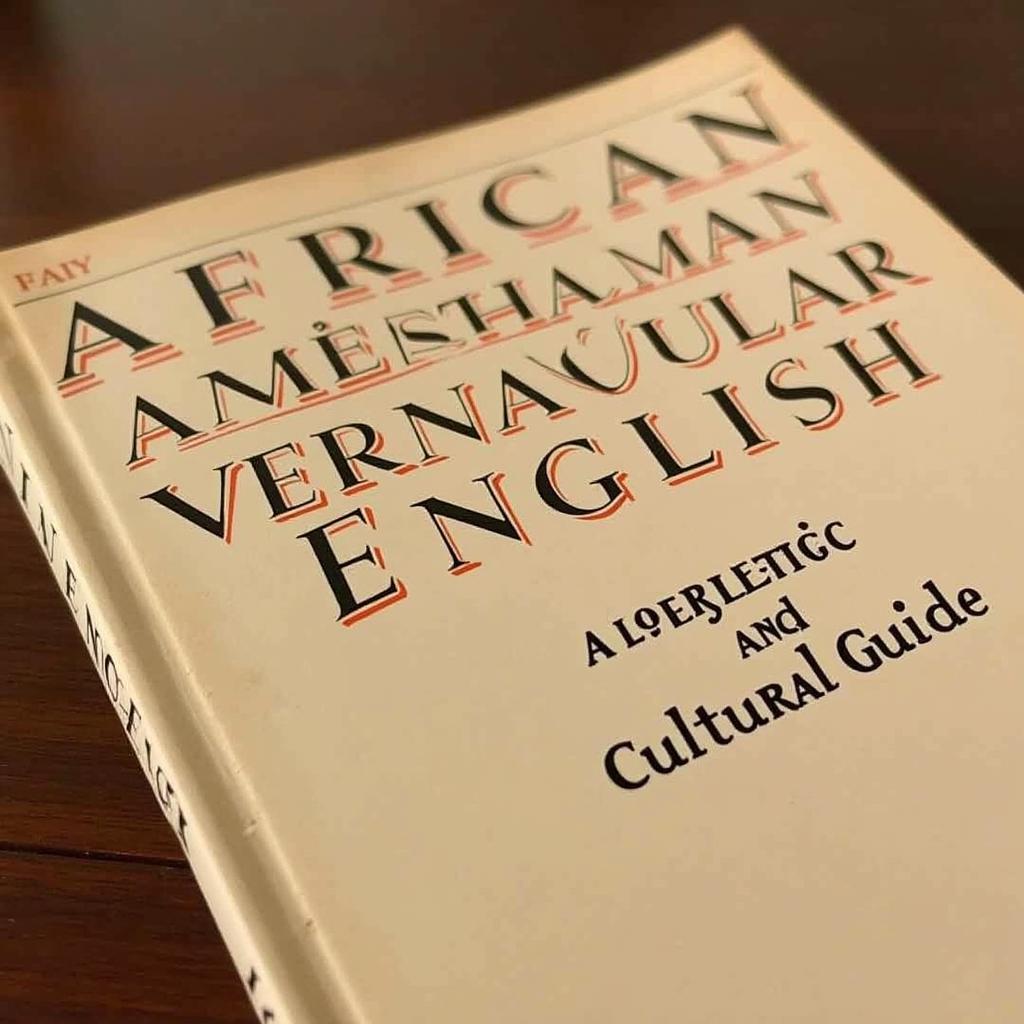Decoding the African American Accent: A Translator’s Guide
Understanding the nuances of the African American accent, sometimes referred to as African American Vernacular English (AAVE), is crucial for effective communication and cultural exchange. Whether you’re a linguist, a traveler, or simply curious about language, this guide explores the complexities and richness of this distinct dialect.
What Makes the African American Accent Unique?
The African American accent isn’t monolithic. Just like any other dialect, it exhibits regional variations, influenced by geography, history, and social factors. It shares some features with Southern American English, reflecting the history of enslaved Africans in the South. However, AAVE possesses its own distinct grammar, pronunciation, and vocabulary that set it apart. These features are not “errors” or “slang” but rather systematic rules that govern the dialect, making it a complex and fascinating language system.
Key Features of AAVE Pronunciation
One notable feature is the consonant cluster reduction, where consonant sounds at the end of words are simplified or omitted. Think “bes'” instead of “best” or “han'” instead of “hand.” Another characteristic is the vowel shift, where vowels are pronounced differently than in Standard American English. These shifts can make understanding AAVE challenging for those unfamiliar with it, highlighting the need for resources that help bridge the communication gap.
Is There an African American Accent Translator?
While a literal “African American Accent Translator” that perfectly converts spoken AAVE into Standard American English doesn’t currently exist, resources are available to aid comprehension. Dictionaries and glossaries of AAVE terms can be helpful, and engaging with AAVE speakers is the best way to gain fluency and understanding. Language learning apps and websites might offer some resources, but they often fall short of capturing the full complexity of AAVE.
The Importance of Cultural Sensitivity
It’s crucial to approach the African American accent with respect and avoid making generalizations or stereotypes. AAVE is a legitimate dialect with its own rich history and cultural significance. Understanding the context and history of AAVE helps avoid misinterpretations and fosters more meaningful communication.
 Two people engaged in a conversation, demonstrating the use of AAVE in everyday communication.
Two people engaged in a conversation, demonstrating the use of AAVE in everyday communication.
Common Misconceptions about AAVE
One common misconception is that AAVE is simply “broken” English. This view ignores the complex grammar and rules that govern the dialect. Another misconception is that all African Americans speak AAVE. In reality, AAVE usage varies greatly depending on individual, regional, and social factors.
Learning and Appreciating AAVE
Learning about AAVE can be a rewarding experience, enriching your understanding of language and culture. Start by listening to AAVE speakers in various contexts, from music and movies to everyday conversations. Explore books and articles on the subject and engage in respectful conversations with AAVE speakers.
Dr. Anika Olumide, a renowned sociolinguist specializing in AAVE, explains, “AAVE is not simply a deviation from Standard English, but a vibrant and complex language system with its own distinct rules and structure. Understanding its nuances is key to appreciating the rich tapestry of African American culture.”
Bridging the Communication Gap
Effective communication relies on understanding and respecting linguistic diversity. While a perfect “African American accent translator” might not exist, embracing cultural sensitivity and actively engaging with the language can significantly bridge the communication gap. Remember, language is constantly evolving, and embracing its diversity enriches our understanding of the world around us.
 A book about African American Vernacular English.
A book about African American Vernacular English.
Conclusion: Embracing the Richness of AAVE
The African American accent is a fascinating and complex dialect that reflects the rich cultural heritage of African Americans. While technology hasn’t yet provided a perfect “African American accent translator,” actively engaging with the language and embracing cultural sensitivity can significantly enhance understanding and communication.
FAQs
-
What is AAVE?
AAVE stands for African American Vernacular English, a distinct dialect of English spoken by many African Americans. -
Is AAVE slang?
No, AAVE is not slang. It is a fully formed dialect with its own grammatical rules and vocabulary. -
Is there a translator for AAVE?
While no perfect translator exists, resources like dictionaries and glossaries can help with comprehension. -
Why is it important to understand AAVE?
Understanding AAVE fosters better communication and cultural understanding. -
How can I learn more about AAVE?
Listen to AAVE speakers, read books on the subject, and engage in respectful conversations. -
Is AAVE spoken by all African Americans?
No, AAVE usage varies depending on individual, regional, and social factors. -
What are some common misconceptions about AAVE?
Common misconceptions include that it is “broken” English or simply slang.
You can find more information on related topics like African American culture and language diversity on other pages of our website. For personalized assistance, please reach out to us.
Contact us for any questions or support.
Phone: +255768904061
Email: kaka.mag@gmail.com
Address: Mbarali DC Mawindi, Kangaga, Tanzania.
We have a 24/7 customer support team ready to assist you.
